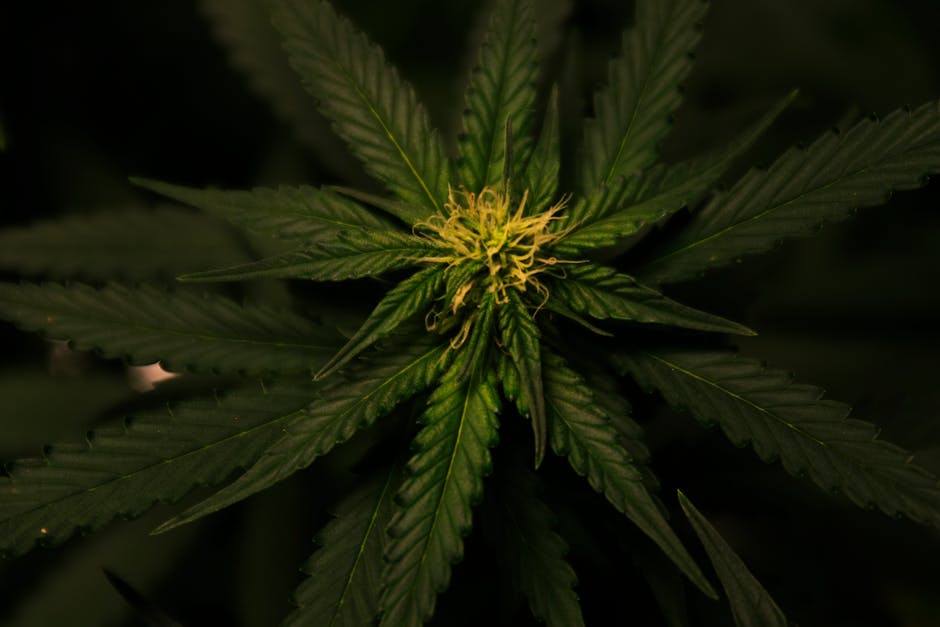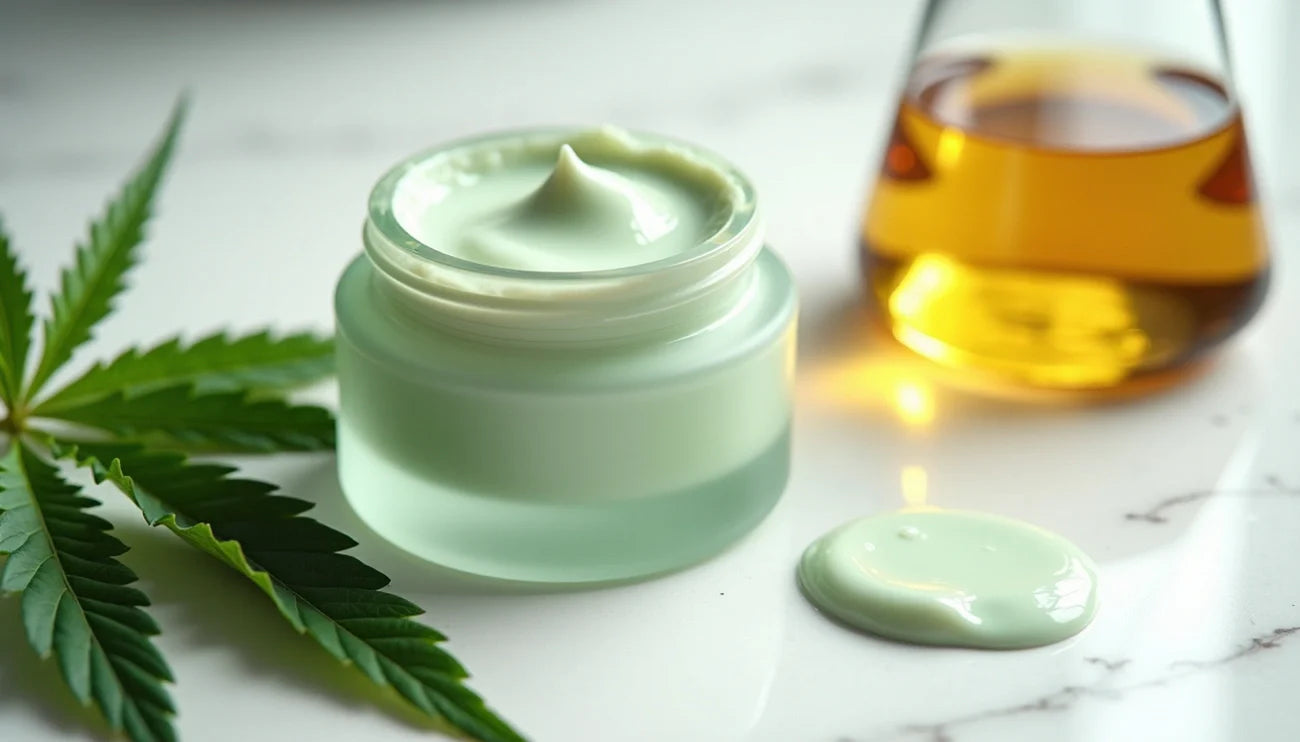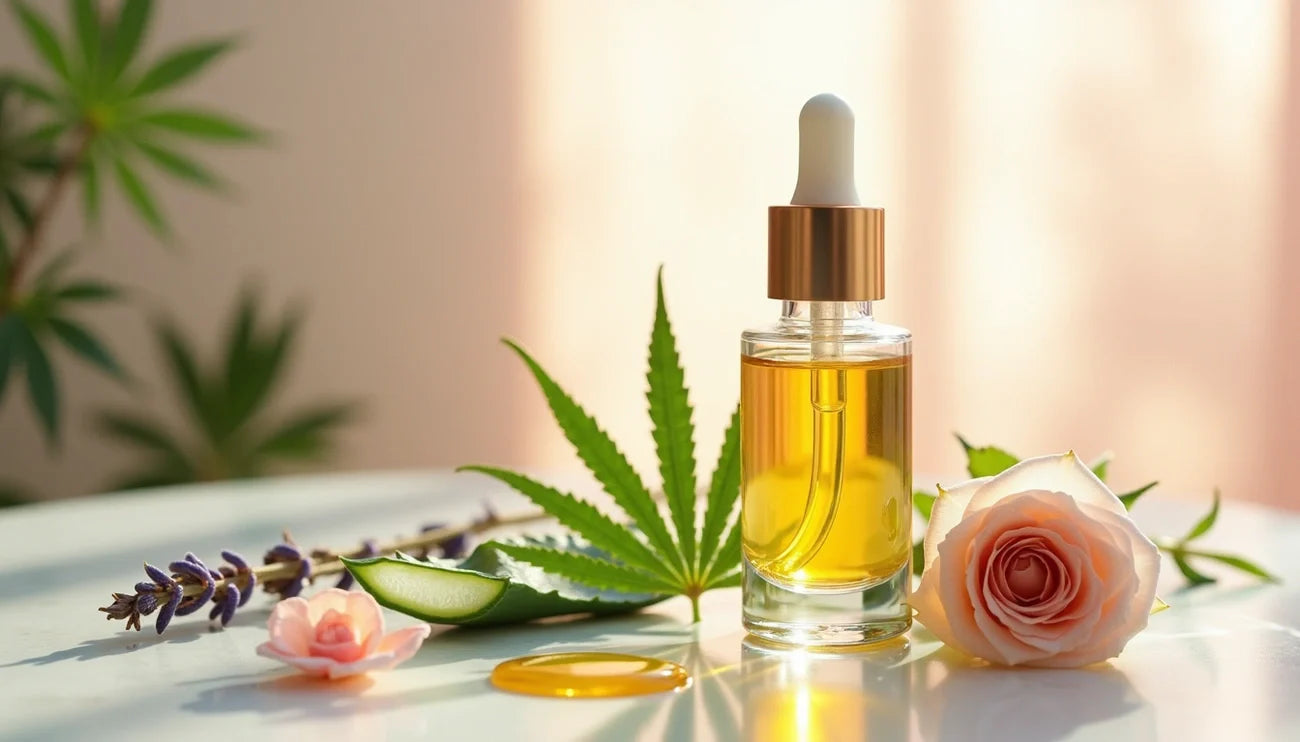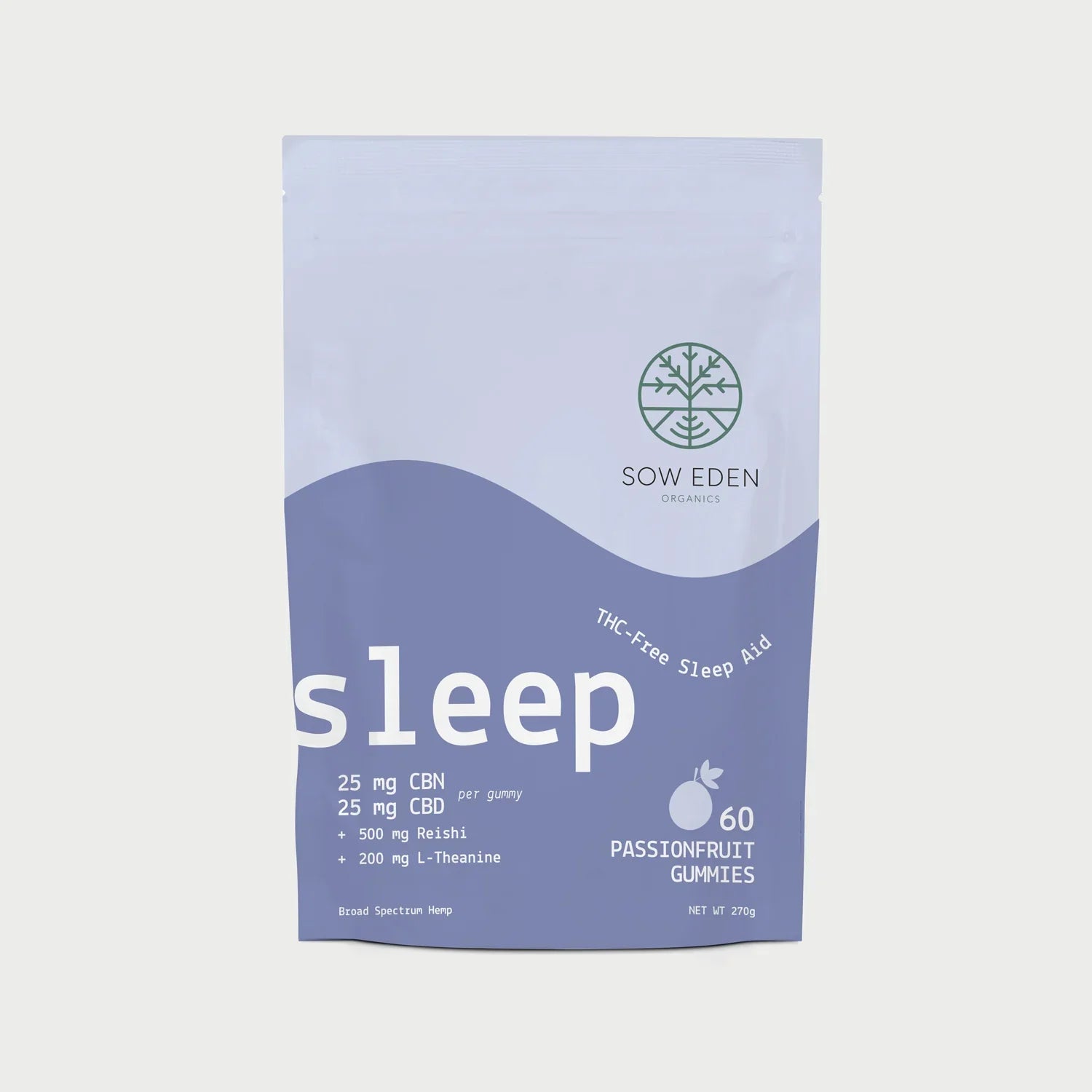CBDA, a key player in cannabinoids, comes from the Cannabis sativa plant. For those curious about cbda: It is the acidic precursor to CBD, offering unique health properties without the psychoactive effects of THC.
- Cannabinoids: These are natural compounds found in the Cannabis plant.
- CBDA vs. THC: CBDA is non-psychoactive, while THC is responsible for the psychoactive "high."
- Wellness Potential: CBDA is gaining interest for its potential benefits in wellness and health.
The Cannabis sativa plant is not just about recreational use; it holds potential for wellness applications as well. While THC has been more talked about due to its psychoactive properties, CBDA, as a non-psychoactive compound, quietly offers a path to natural wellness solutions.
I'm Jacob Dunn, CEO of Sow Eden Organics. With a background in holistic wellness, I've dedicated my efforts to exploring the potentials of cbda in our products. Let's dive deeper to understand why this compound is becoming a focal point in wellness discussions.

Cbda definitions: - cannabinoid - raw cannabinoid cones - what is thc
Understanding CBDA
CBDA's Unique Properties
CBDA, or cannabidiolic acid, is a fascinating compound in cannabinoids. It serves as the precursor to CBD, meaning it naturally transforms into CBD through a process called decarboxylation, typically triggered by heat. This change is crucial because while CBDA and CBD are chemically similar, they interact with the body differently.
One of the standout features of CBDA is its role as an enzyme inhibitor. Unlike CBD, CBDA doesn't directly bind to endocannabinoid receptors. Instead, it inhibits certain enzymes, such as COX-2, which are involved in inflammation. This inhibition can potentially reduce inflammation, making CBDA a compound of interest for those exploring natural ways to manage inflammatory conditions.
CBDA also interacts with serotonin receptors. This interaction is significant because serotonin plays a key role in mood regulation and feelings of well-being. Some studies suggest that CBDA might be beneficial in reducing nausea, especially in chemotherapy patients, due to its effect on serotonin receptors.
Moreover, CBDA is part of the entourage effect, a phenomenon where different compounds in the cannabis plant work together to improve each other's effects. When CBDA is combined with other cannabinoids like CBD, it can create a synergistic effect, potentially enhancing the therapeutic benefits.
In summary, CBDA is a non-psychoactive cannabinoid acid with unique properties that set it apart from its more famous counterpart, CBD. Its ability to inhibit enzymes and interact with serotonin receptors highlights its potential in wellness applications. As research continues, the understanding of CBDA's full benefits is likely to grow, further emphasizing its importance in the field of natural health solutions.
THC: The Psychoactive Component
How THC Works
Tetrahydrocannabinol, or THC, is the most well-known compound in cannabis, famous for its psychoactive effects. Unlike CBDA, THC binds directly to the endocannabinoid receptors in the brain, particularly the CB1 receptors. This binding is what gives THC its psychoactive properties, often referred to as a "high."
Psychoactive Effects
When THC binds to the CB1 receptors, it alters the normal functioning of the brain. This can lead to changes in mood, perception, and behavior. Users might experience euphoria, relaxation, or heightened sensory perception. However, it can also cause anxiety or paranoia in some individuals.
Binding to Receptors
The binding of THC to the CB1 receptors is a key factor in its psychoactive effects. These receptors are part of the endocannabinoid system, which plays a role in regulating mood, memory, and appetite. By influencing these receptors, THC can affect various mental and physical functions.
Legal Status
The legal status of THC is complex. Under federal law in the United States, THC is classified as a Schedule I substance, meaning it is considered illegal with no accepted medical use. However, many states have legalized THC for medical or recreational use. This creates a patchwork of laws that can be confusing for consumers.
Legal Implications
The legal implications of using THC can vary greatly depending on where you live. In states where it's legal, you can purchase THC products at licensed dispensaries. But in states where it's not, possession can lead to legal penalties. It's crucial to understand the laws in your area to avoid any legal issues.
In summary, THC is a powerful psychoactive component of cannabis that interacts with the brain's receptors to produce its effects. Its legal status is varied, making it important to stay informed about regulations in your location.
CBDA vs. THC: Key Differences
Health Implications
Non-Psychoactive Nature
Unlike THC, CBDA is non-psychoactive. This means it doesn't produce the "high" associated with cannabis use. This makes CBDA an attractive option for those seeking the potential benefits of cannabis without the mind-altering effects.
Health Benefits
CBDA is gaining attention for its potential health benefits. Research suggests it may help with nausea, inflammation, and anxiety. For instance, studies have shown that CBDA can activate serotonin receptors, which play a role in mood and anxiety regulation. This might make it helpful for those experiencing anxiety or nausea, especially during chemotherapy.

Nausea Relief
CBDA's interaction with serotonin receptors may offer relief from nausea. Preliminary research indicates that CBDA could be more effective than CBD in reducing nausea. This is particularly interesting for patients undergoing treatments like chemotherapy, where nausea is a common side effect.
Inflammation
CBDA has been found to inhibit the COX-2 enzyme. This enzyme is associated with inflammation. By reducing its activity, CBDA might offer anti-inflammatory benefits similar to some over-the-counter medications, but without the side effects linked to synthetic drugs.
Anxiety
Because of its effect on serotonin receptors, CBDA holds promise for anxiety relief. While more studies are needed, early research suggests it could help manage anxiety symptoms. This is especially relevant for individuals looking for natural ways to cope with stress and anxiety.
Legal Status
The legal status of CBDA is more straightforward than THC. Under the 2018 Farm Bill, hemp-derived products containing less than 0.3% THC are federally legal in the United States. This includes CBDA, making it widely accessible without the legal complications associated with THC. However, it's always wise to check state-specific regulations as they can vary.
In conclusion, CBDA offers several potential health benefits without the psychoactive effects of THC. Its legal status is generally more favorable, allowing for easier access and use.
Frequently Asked Questions about CBDA and THC
Is CBDA more powerful than THC?
When considering potency, it's crucial to differentiate between psychoactive effects and therapeutic potential. CBDA is non-psychoactive, which means it won't get you high like THC does. However, in terms of interacting with certain receptors, like serotonin receptors, CBDA has shown to be quite potent. For instance, preliminary research suggests that CBDA might be up to 100 times more effective than CBD at activating serotonin receptors, which are linked to mood and nausea regulation.
On the other hand, THC is well-known for its strong psychoactive effects due to its ability to bind directly to the endocannabinoid receptors in the brain. This binding is what produces the "high" associated with cannabis.
In summary, while THC is more potent in terms of psychoactivity, CBDA may offer more potent therapeutic effects in certain areas like nausea relief.
Can CBDA and THC be used together?
Yes, CBDA and THC can be used together, and doing so might even improve their benefits through what's known as the entourage effect. This phenomenon occurs when different cannabinoids work together to amplify each other's effects. For instance, while THC may provide psychoactive relief, CBDA could complement this by offering anti-inflammatory or anti-nausea benefits without additional psychoactivity.
This combined approach might allow individuals to experience a broader range of benefits from cannabis, potentially using lower doses of THC to achieve the desired effects. However, consider individual tolerance and the specific needs of the user when combining these cannabinoids.
What are the legal considerations for CBDA and THC?
The legal status of CBDA and THC differs significantly. Under the 2018 Farm Bill, hemp-derived products that contain less than 0.3% THC are federally legal in the United States. This includes CBDA, which is derived from hemp and doesn't have psychoactive properties. Therefore, CBDA is generally more accessible and less legally complex.
THC, however, is a different story. While some states have legalized recreational and medical use of cannabis, THC remains federally illegal in concentrations above 0.3%. This creates a patchwork of laws across the country, where some states allow THC use under certain conditions, while others do not.
It's always important to check both federal laws and state laws before purchasing or using products containing CBDA or THC to ensure compliance with local regulations.
Conclusion
At Sow Eden, we believe in the power of nature to promote holistic wellness. Our mission is to bring you the highest quality, premium organic products that harness the benefits of cannabinoids like CBDA without the psychoactive effects of THC.
CBDA, a non-psychoactive compound found in hemp, offers unique properties that may support overall well-being. Unlike THC, it doesn't bind directly to endocannabinoid receptors, meaning it won't produce a "high." Instead, it interacts with other receptors in the body, potentially offering therapeutic benefits.
We take pride in our commitment to quality and transparency. At Sow Eden, we source our hemp from organic farmers and ensure that all our products are carefully crafted in-house. This dedication ensures that you receive the most effective and safe products possible. Our broad spectrum oil, rich in minor cannabinoids, is a testament to our focus on delivering the best nature has to offer.
As you explore cannabinoids, CBDA and THC serve different purposes. While THC may be known for its psychoactive effects, CBDA offers a non-intoxicating alternative that could complement your wellness routine.
For those interested in incorporating CBDA into their lifestyle, we invite you to explore our wellness collection and find the potential benefits of our carefully formulated products.
At Sow Eden, we are passionate about helping you achieve a balanced and healthy life through the power of plants. Thank you for joining us on this journey to holistic wellness.




